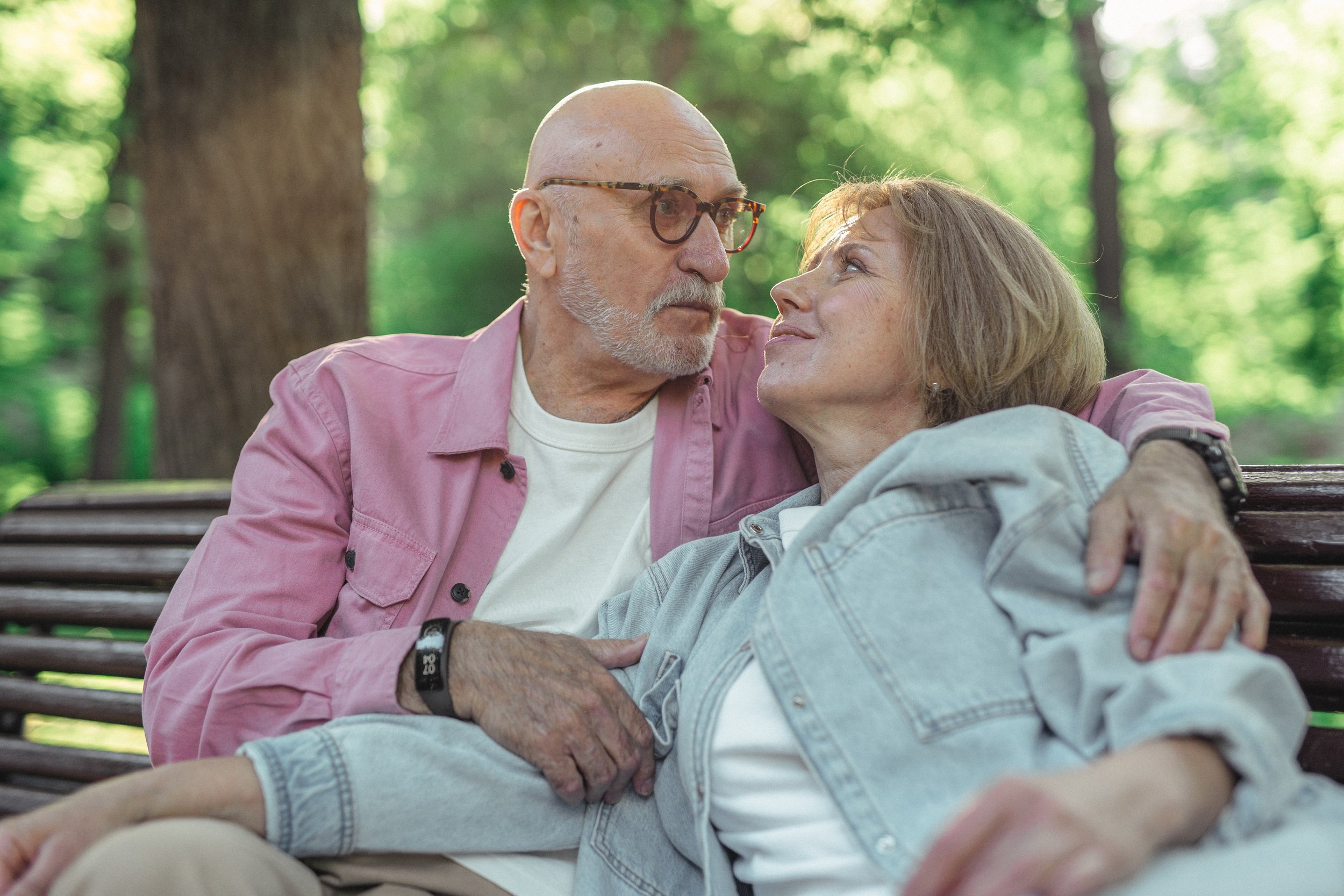Talking Out Loud about Sex and Aging
Yes, sex after 50, 60, 70, and beyond has its challenges, but it can also be satisfying and joyful if we learn, adapt, and explore.
For our latest Sex Plus Symposium session, we were joined by Joan Price. She is the co-creator of the film, “jessica drake's Guide to Wicked Sex: Senior Sex,” which won the Audiovisual Award 2020 from the American Association of Sexuality Educators, Counselors and Therapists and Best Niche Production from AVN Awards 2020.
Joan discussed the major sexual concerns seniors may be reluctant to share, along with the answers to their most common questions. We also discuss the top pleasure and health tips for seniors to help them enjoy lifelong sexual pleasure.
At age 78, Joan Price continues to talk out loud about senior sex — partnered or solo. An award-winning author and internationally popular public speaker and sex educator, Joan is known globally as an expert in older-age sexuality. Her books include:
Sex after Grief: Navigating Your Sexuality After Losing Your Beloved
The Ultimate Guide to Sex after Fifty: How to Maintain – or Regain! – a Spicy, Satisfying Sex Life
Better Than I Ever Expected: Straight Talk about Sex After Sixty
In this session, we throw out the stereotypes about older-age sexuality and uncover a new attitude about sexuality later in life.
It’s key to remember that no matter our age, we are all sexual beings.
Why Don’t Older People Seek Help?
Seniors older than 60 may be reluctant to share their sexual concerns due to embarrassment and shame or not being seen or treated as sexual beings.
Oftentimes, people over a certain age assume problems are normal given their age. Many assume there’s no solution to the problem, so questions don’t get asked. Additionally, many older folks are self-conscious about their age in relation to a potentially much younger therapist.
Societal stereotypes stemming from the media also contribute to older people being reluctant to seek help. Whether it’s ads for anti-aging products, Viagra commercials showing a couple who appear to be in their 40s, or TV programs and movies often mocking older people who are sexual, cultural context tells elderly people their sexuality is invalid.
The fact is, if any person — regardless of their age — experiences sexual problems, they should seek help from a sex therapist.
Changing Sex Education
Sex education has changed dramatically over time, but it still doesn’t provide education around sexuality.
In the '50s, sex education was focused on what to wear on dates and how menstruation worked. It briefly touched on the reproductive system, but not how penetrative sex happens.
As sex education evolved, women were portrayed as unknowingly bringing on whatever happened to them sexually and men were excused for any behaviors. Classes focused on avoiding sex and pregnancy.
It was also taught that as women got older, those who did not experience orgasm through penetrative sex were frigid. People were not taught that 75% to 80% of women do not experience orgasm through penetrative sex. Women were expected to go from, "don't touch me, I'm a good girl," before marriage to orgasming together on the wedding night.
Sex education never provided skills to talk about sex or pleasure, and students never learned how to ask for what they want or to set boundaries. For the generations raised with this perception of sex, it’s difficult to explore sexuality as they age, but it should be known that sex does not have an expiration date.
Growing with Your Sexuality
Some natural human changes present obstacles to sexuality for seniors.
There can be a biological component, such as menopause, to differences in desire. Many cis-gendered heterosexual women feel pressure from their male counterparts due to differences in biology. Females often feel like it’s a responsibility to their partner or that they owe them sex. There is a difference between desire that just happens and desire that you create through pleasure.
Spontaneous desire is the hormonal rush that makes you want to have sex. Responsive desire is in response to pleasure and arousal. In other words, if you put off sex by saying, "I'm not in the mood," but when you get started, you really like it then you experience responsive desire.
People often think that if they don't feel a spontaneous desire they're not feeling desire as a whole, which can put pressure on a monogamous relationship, but open discussions about this can help senior couples experience joyful connections to sex.
Shame around aging bodies can also halt spontaneous desire.
People should understand that their bodies at any age can give and receive sexual pleasure. The embarrassment around an aging body is because society teaches us our bodies are not desirable after a certain age. This is something we have been taught but can unlearn.
Another challenge most often facing seniors is the loss of a partner. Although this can happen to anyone, it’s a more distinct possibility as we age. Individuals that have lost a partner and begin to explore their sexuality again find it impacts both them individually and their family dynamic.
They often feel they can’t ask a grief counselor or doctor because sex as a senior is such a cultural taboo, but someone going through grief is also likely experiencing a sexual component with the loss.
Opening the door for conversations is the first step in getting in touch with your sexuality at any age.
In part two of our session with Joan Price, we’ll discuss different sexual concerns for older people and new ways to enjoy sex.


